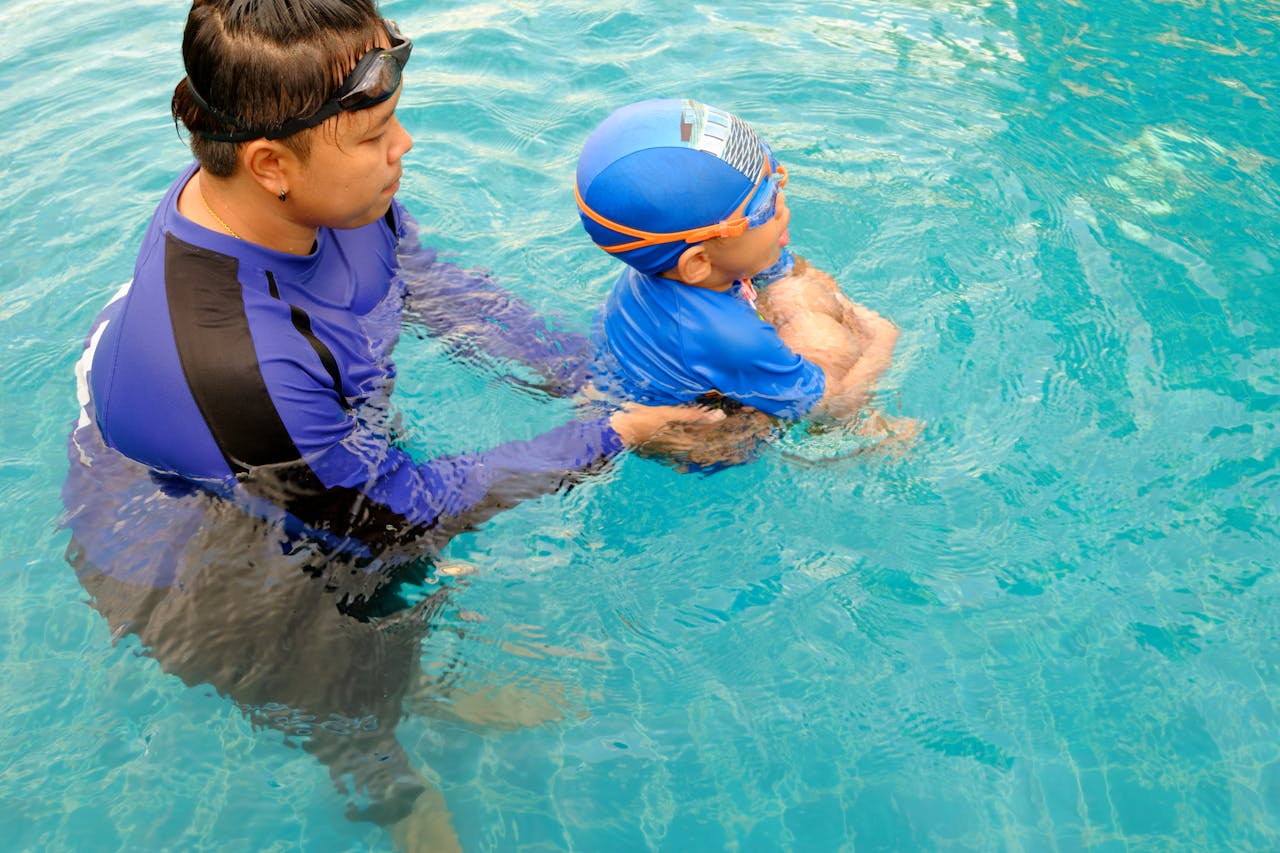Summer is here, meaning lots of fun activities for children and their families. With the hot weather comes many opportunities to go swimming, visit the beach, and participate in other water-based play. In these situations, everybody needs to be familiar with their specific environment to ensure a fun and safe time for all. Parents and family members need to understand the best ways to protect their kids from sun damage, falls, potential drowning risks, and other dangers that come when children are near water.
To support their needs and safeguard children during water play, we’ve rounded up some great tips to help protect them this summer. Keep reading to learn more!
Water Safety is the #1 Priority
It is important for children and their families to understand just how serious and important water safety is. Drowning is the leading cause of death for children between the ages of one to four years old, so parents and guardians need to be extra cautious when it comes to swimming and water time during the summer months. Drowning can happen in mere seconds, so it is critical to protect children by being alert and actively watching them at all times.
Designating one adult to be the ‘water watcher’ is a great idea, as this individual’s only responsibility is to watch the water and make sure nobody is struggling. Parents and guardians can also invest some time in becoming CPR-certified. Taking a CPR class can make a big difference if anyone gets into a dangerous situation, as the chances of survival go up.
Teaching Children Water Safety
Taking the time to talk to children about water safety can also be very beneficial in preventing drowning incidents and dangerous situations. For example, parents can teach kids how to keep their heads above the water and promote other strong swimming skills that can be useful in the water. It is also helpful to teach children that different bodies of water have different risks. For example, oceans have riptides, lakes can have sudden drop-offs, etc. Being aware of these specific situations can help children navigate their water environment more successfully.
Older children, such as teenagers, can also be at a high risk of drowning in lakes, ponds, and open water. This usually happens when teen boys are trying to show off to their friends and pushing the limits of water safety. Family members need to remind teens to keep water safety their top priority. Teens also need to be taught that drinking or doing drugs in the water is an absolute no and could lead to drowning or other deadly incidents.
Additional Water Safety Tips
There are many more ways for children to stay safe in the water this summer, such as:
- Staying Hydrated: When playing outdoors children need to stay well hydrated. This is even more critical during the hot summer months when the temperature can be at its highest.
- Sun Protection: Children should always be kept protected from the sun’s harmful rays during the summer months. Families can shield them by utilizing sunscreen, hats, sunglasses, and clothing that protects their skin. When playing in water, it is also important to reapply sunscreen frequently.
- Safe Pool Areas: Ensure kids are safe when around the pool by banning running or unsafe behavior. Keep the area clear of toys and other objects to prevent tripping and falling in or around the pool. It’s also smart to take toys out of the pool when not in use to avoid enticing children to reach and fall in.
- Emergency Plan: In case of an emergency, have a plan in place for where to take people who need medical assistance. Keep the names of emergency contacts nearby and collect important phone numbers. It’s also a good idea to keep a first aid kit around with all the essentials needed for accidents.
- Boat Safety: For boating activities, ensure children are wearing their life jackets when on the boat or near open water. It’s key to teach children about the importance of staying seated and keeping their hands and feet inside the boat at all times.
Conclusion
As you can see, there are so many great ways for families to protect their children during water activities. This summer, take time to supervise children properly, teach them about water safety, and safeguard their environment. Doing so can lower the risk of dangerous incidents occurring and ensure that everybody can have a safe and fun summer in the water.

